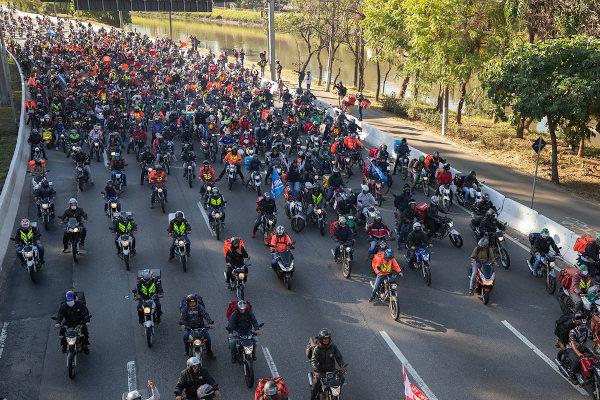As this is not a new phenomenon, the process of migration, which today happens on a large scale and all over the world, became significant with the process of European expansion, at the time we commonly refer to as "the era of great navigations". The great expeditions of European explorers had as one of their objectives to find and colonize new territories. These new colonies were established with the aim of adding new territories to the domains of the colonizing nation, which sought with this will expand their political domain and, at the same time, conquer new lands with exploitable resources that would bring greater power. economic. The settlers, Europeans who left their homeland and were in charge of building and establishing the domain of their nation in this new territory, were the ones who started the large-scale migratory process that is characteristic of our reality today. globalized.
Today, the phenomenon of migration takes place in contexts completely different from those of the era of large explorations. The globalization process, which also begins with the great navigations, "shrinked" our world, shortened great distances, turned the time of journeys that would take weeks, months or years, into hours. Ease of travel has become a big factor for those who decide to migrate. The motivations for these migrations, on the other hand, are numerous: the search for a better life, the escape from an armed conflict between different powers, cultural or political persecution of a group or individual, or even the search for the experience of living with different cultures.
It is therefore convenient for us to specify, in order to better understand, that in this same migratory process there are differences as to the migrant's objective and in what sense his/her change takes place. we talk about immigration when the movement is of people who enter a country to take up residence, while the emigration it refers to the process in which people from one country leave its territory to settle in another.
It is from the intensification of migrations in the period post-World War II that the phenomenon has become a political concern. Concerns such as the dissolution of national identities, or the idea of losing an identity built within a nation, or economic claims by individuals from that nation who claimed to be harmed by the growing competition in obtaining jobs, came to be seen as a threat to the social well-being of nations that received large amounts. of immigrants. Immigration policies began to be tightened, restricting the number of immigrants accepted in countries targeted by large migratory movements.
Do not stop now... There's more after the advertising ;)
immigration and legality
The requirements for legal immigration are so strict and inescapable for most people who wish to move to other territories, that illegal immigration ends up becoming the only option viable. Among the requirements are the existence of direct kinship with a US citizen, for example, high specialization in an area professional or academic, being a large investor (from 500 thousand to 1 million dollars) or entrepreneur who generates employment in the country, among others.
The clearest example is the large number of illegal immigrants who try or manage to cross the US-Mexico border, which is generally driven by the pursuit of a promise of improved health. life. These illegal immigrants risk their lives, paying large amounts of money to facilitating agents, called “coyotes”, to help them cross the border. However, the risk of being caught, killed or ending up as victims of human trafficking, which sell kidnapped men and women as slave workers or for forced prostitution, it's great.
In our period, immigration is so common that theorists have agreed to call the last few decades “the era of migrations”. It is estimated that in 1990 the migrant population of the world was 80 million people, in 2010 this number is estimated to have increased to about 214 million.
We live in a period in which national borders are increasingly diluted; immigration, legal or illegal, has become one of the defining characteristics of societies in our contemporary world.
by Lucas Oliveira
Graduated in Sociology
Would you like to reference this text in a school or academic work? Look:
RODRIGUES, Lucas de Oliveira. "Illegal immigration"; Brazil School. Available in: https://brasilescola.uol.com.br/sociologia/imigracao-ilegal.htm. Accessed on June 27, 2021.



